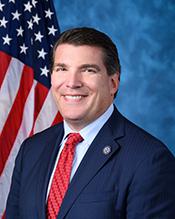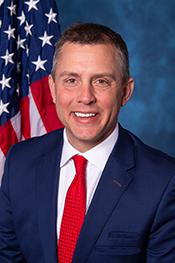0
0
0
Extending Access to Addiction Treatment Act
2/5/2024, 2:30 PM
Summary of Bill HR 3736
Bill 118 HR 3736, also known as the Extending Access to Addiction Treatment Act, aims to expand access to addiction treatment services for individuals struggling with substance abuse disorders. The bill seeks to address the growing opioid epidemic in the United States by increasing the availability of medication-assisted treatment (MAT) for those in need.
One of the key provisions of the bill is the expansion of the Drug Addiction Treatment Act of 2000 (DATA 2000), which allows qualified physicians to prescribe certain medications, such as buprenorphine, to treat opioid addiction. The bill would remove the current cap on the number of patients that a physician can treat with buprenorphine, thereby increasing access to this life-saving medication.
Additionally, the bill would require the Department of Health and Human Services to conduct a study on the barriers to accessing MAT, particularly in rural and underserved areas. This study would help identify ways to improve access to treatment for individuals in these communities. Overall, the Extending Access to Addiction Treatment Act is a bipartisan effort to address the opioid crisis by expanding access to evidence-based treatment options. By removing barriers to MAT and conducting a study on access issues, the bill aims to improve outcomes for individuals struggling with addiction and reduce the devastating impact of the opioid epidemic in the United States.
One of the key provisions of the bill is the expansion of the Drug Addiction Treatment Act of 2000 (DATA 2000), which allows qualified physicians to prescribe certain medications, such as buprenorphine, to treat opioid addiction. The bill would remove the current cap on the number of patients that a physician can treat with buprenorphine, thereby increasing access to this life-saving medication.
Additionally, the bill would require the Department of Health and Human Services to conduct a study on the barriers to accessing MAT, particularly in rural and underserved areas. This study would help identify ways to improve access to treatment for individuals in these communities. Overall, the Extending Access to Addiction Treatment Act is a bipartisan effort to address the opioid crisis by expanding access to evidence-based treatment options. By removing barriers to MAT and conducting a study on access issues, the bill aims to improve outcomes for individuals struggling with addiction and reduce the devastating impact of the opioid epidemic in the United States.
Read the Full Bill
Current Status of Bill HR 3736
Bill HR 3736 is currently in the status of Bill Introduced since May 25, 2023. Bill HR 3736 was introduced during Congress 118 and was introduced to the House on May 25, 2023. Bill HR 3736's most recent activity was Referred to the Subcommittee on Health. as of May 26, 2023
Bipartisan Support of Bill HR 3736
Total Number of Sponsors
1Democrat Sponsors
1Republican Sponsors
0Unaffiliated Sponsors
0Total Number of Cosponsors
6Democrat Cosponsors
0Republican Cosponsors
6Unaffiliated Cosponsors
0Policy Area and Potential Impact of Bill HR 3736
Primary Policy Focus
HealthPotential Impact Areas
- Drug therapy
- Drug, alcohol, tobacco use
- Medicaid
Alternate Title(s) of Bill HR 3736
Extending Access to Addiction Treatment Act
Extending Access to Addiction Treatment Act
To amend title XIX of the Social Security Act to extend the requirement for State Medicaid plans to provide coverage for medication-assisted treatment.
Comments
Sponsors and Cosponsors of HR 3736
Latest Bills
Public Lands Military Readiness Act of 2025
Bill HR 5131December 11, 2025
Dalles Watershed Development Act
Bill HR 655December 11, 2025
STARS Act
Bill HR 4285December 11, 2025
To authorize, ratify, and confirm the Agreement of Settlement and Compromise to Resolve the Akwesasne Mohawk Land Claim in the State of New York, and for other purposes.
Bill HR 2916December 11, 2025
To designate the facility of the United States Postal Service located at 86 Main Street in Haverstraw, New York, as the "Paul Piperato Post Office Building".
Bill HR 1009December 11, 2025
Make SWAPs Efficient Act of 2025
Bill HR 1676December 11, 2025
Miccosukee Reserved Area Amendments Act
Bill HR 504December 11, 2025
To designate the facility of the United States Postal Service located at 298 Route 292 in Holmes, New York, as the "Sheriff Adrian 'Butch' Anderson Post Office Building".
Bill HR 1008December 11, 2025
Lower Elwha Klallam Tribe Project Lands Restoration Act
Bill HR 2388December 11, 2025
Fallen Servicemembers Religious Heritage Restoration Act
Bill HR 2701December 11, 2025



